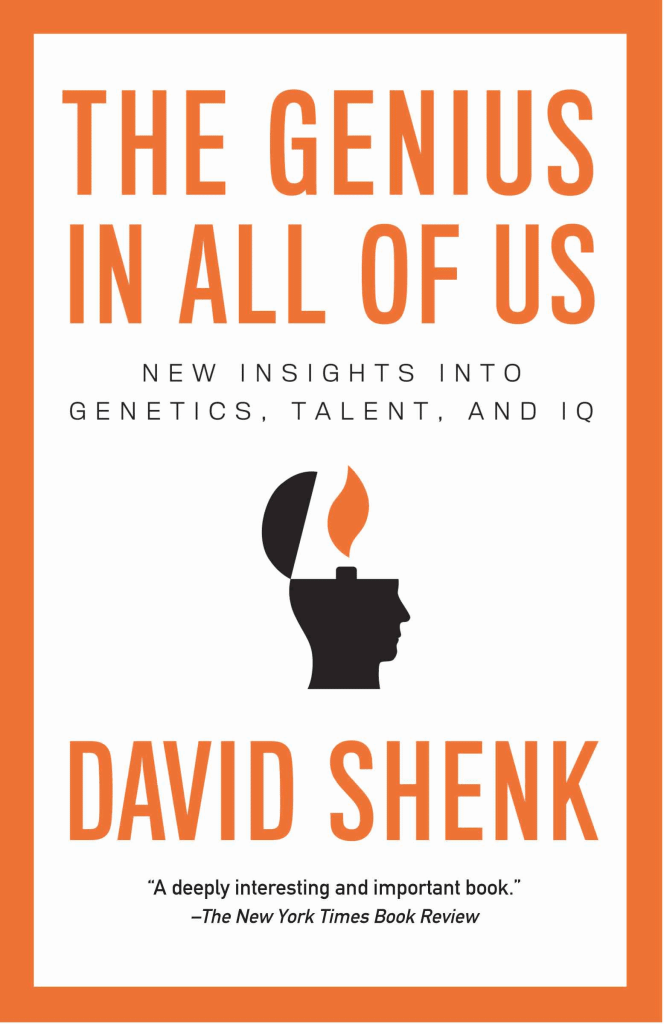The Genius in All of Us: Why Everything You’ve Been Told About Genetics, Talent, and IQ Is Wrong by David Shenk challenges conventional beliefs about the role of genetics in human potential, arguing that talent, intelligence, and success are not purely predetermined by DNA. Instead, Shenk presents a more nuanced view, emphasizing the interaction between genes and environment, or what scientists call “epigenetics.”
Key Points of the Book:
- Nature vs. Nurture: Shenk argues that it’s not a simple case of “nature versus nurture” but rather “nature through nurture.” Genes provide potential, but how that potential is realized depends largely on the environment, experiences, and effort.
- Myth of Talent: The book challenges the idea that extraordinary abilities in areas like sports, music, or academics are innate gifts that only a few possess. Shenk contends that anyone can develop remarkable skills with the right combination of practice, opportunity, and motivation, citing examples like Mozart and Michael Jordan.
- IQ is Not Fixed: Contrary to the widespread belief that intelligence is largely fixed at birth, Shenk argues that IQ is malleable and can be improved through learning, effort, and a stimulating environment. He provides evidence showing that intelligence grows with use, and under the right conditions, anyone can increase their cognitive abilities.
- Epigenetics and the Dynamic Genome: The book delves into recent discoveries in genetics, particularly in the field of epigenetics, which shows that genes are not static. Environmental factors, including diet, exercise, and learning, can “switch on” or “switch off” certain genes, significantly influencing development and potential over a lifetime.
- The Power of Mindset: Shenk underscores the importance of mindset, citing Carol Dweck’s research on “fixed” versus “growth” mindsets. People who believe that they can improve and grow tend to be more successful in developing their abilities, while those with a fixed mindset are more likely to plateau.
- Potential for All: Rather than attributing success to natural talent, Shenk encourages readers to recognize their own capacity for growth. The book is an empowering call to take control of one’s development, fostering a belief in the transformative power of effort and persistence.
Conclusion:
The Genius in All of Us ultimately presents a hopeful and scientifically grounded view that human potential is far more flexible than previously thought. Through a blend of scientific research and compelling case studies, Shenk debunks the myth of genetic determinism and highlights the dynamic interplay between genes, environment, and effort in shaping who we become.
